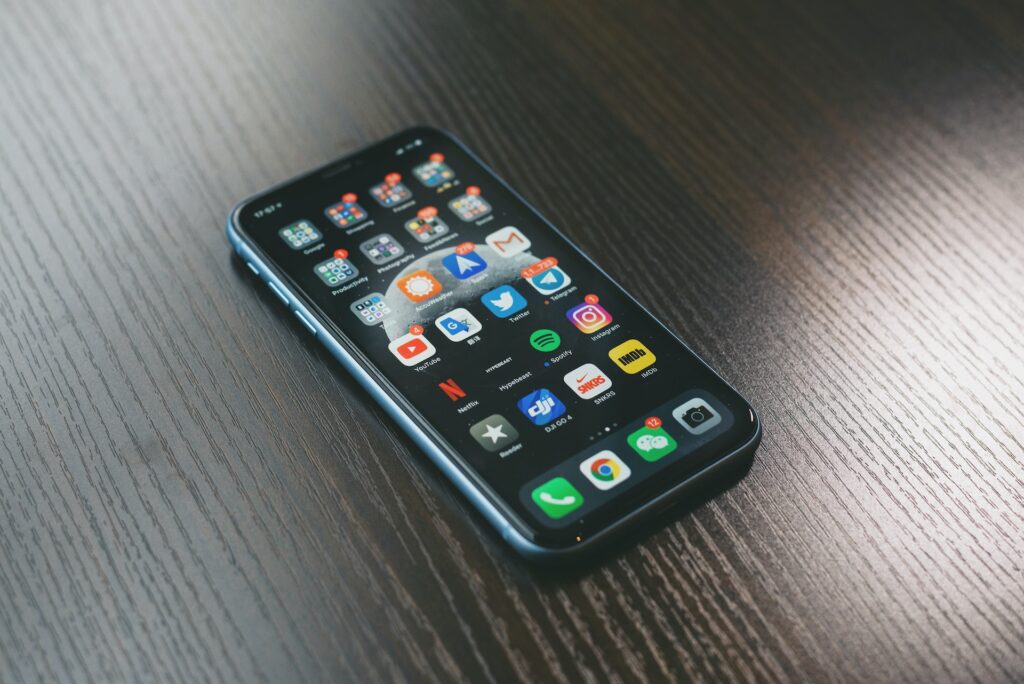Smartphones are here to entertain us, help us find the information we are looking for, and connect us with the whole wide world. They represent a sort of safety net whenever something goes wrong. It’s no secret that our smartphones are an integral part of our lives. On the other hand, they are also often the reason why we waste so much time on unimportant things. How often do we stop to consider whether or not we have a healthy relationship with our phones? The truth is, it can be difficult to tell. To help you assess your relationship with your phone, here are a few questions to consider:
Do you stare into your phone way too often?

If you want a definitive answer to this question you need clear data that do not lie. Fortunately, both Androids and iPhones today offer options for tracking how much time you spend looking at the screen of your phone. You can even see which app is the biggest consumer of your time. Chatting for half an hour via WhatsApp with family or friends will probably be fine. But what about an hour spent on TikTok and another one spent watching YouTube videos? It’s up to you how much time in apps is too much; so why not take control and lock those applications when your set limit has been reached? That way, they won’t be a distraction or temptation towards procrastination!
Are you a slave to your notifications?

This might be one of the first signs that you may have an unhealthy relationship with your phone and are depending on it too much. If you’re finding yourself feeling anxious when you see an icon with missed calls or messages and can]t help yourself but immediately check and respond to everything you might be suffering from FOMO – Fear of Missing Out, which forces you to check social networks every hour, every 30 minutes, or even more often. Take charge of the notifications that direct your attention and keep only important alerts active so you can focus on life beyond that beeping screen.
Do you feel depressed or are experiencing negative thoughts?

We live in an age of constant comparison, made especially easy with the rise of social media. Check what you’re consuming and actively take steps to create a healthier space for yourself. It’s easy to get caught up in comparing our lives with airbrushed holiday snaps and an overabundance of negativity. Don’t lose sight of what makes you happy – why not take a step back from such networks for some perspective? Overcome the comparison trap that only leads down the road to dissatisfaction; focus on yourself instead and bring more positivity into your life!
Are you engaging in unhealthy habits like going to sleep late?

Another way to tell if you have an unhealthy relationship with your phone is if you are engaging in any unhealthy habits related to its use. Are you staying up late and scrolling through social media feeds instead of getting the restful sleep that your body needs? And when you finally go to sleep you can’t really fall asleep? If so, then these are clear signs that something needs to change in order for you to re-establish a healthier balance between digital and real-life activities. It is scientifically proven that the blue light from our cell phones stops the body from producing melatonin – the hormone that tells the body that it is time to go to sleep. According to experts, you should not look at your mobile phone at all for at least an hour before going to bed. Instead, try to read a book or listen to your favorite podcast.
Do you suffer from neck pain or eyestrain?

Although it might be tempting to get lost in your mobile phone, remember that too much screen time close-up can hurt your eyes. Just as you would when working on the computer, take regular breaks every 30 minutes and make sure to shift focus away from screens by looking at distant objects instead! Similarly, don’t let your neck suffer the consequences of too much phone staring! If you hunch over and keep looking down, it’s not just sore muscles that await. You could even end up with a permanent turtle neck – so take some simple steps to protect yourself. Stretch out before bedtime and adjust your posture whenever you can; keeping those shoulders back will pay off in fewer aches or pains.
If you answered yes to more than a couple of these questions, it might be time to have a talk with yourself about your relationship with your phone. It’s totally possible to use your phone in healthy ways – we’re not saying you should never touch it again. But if you find that you can’t put it down, even for a minute, it might be worth exploring some strategies for breaking the dependence. One way is to use a PhoneBox plan that limits your data usage. This forces you to be more mindful about how you use your phone and can help you break unhealthy patterns.

